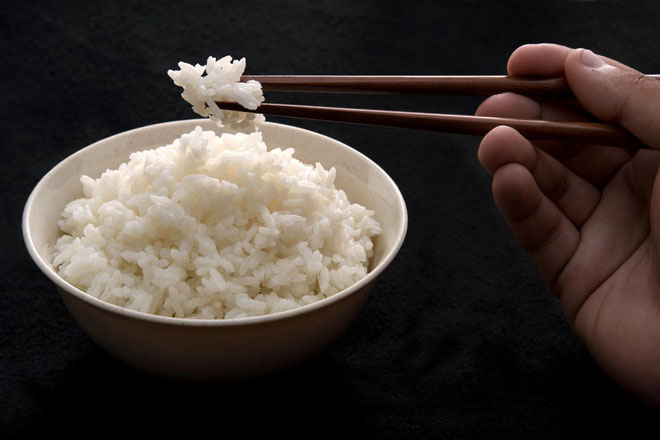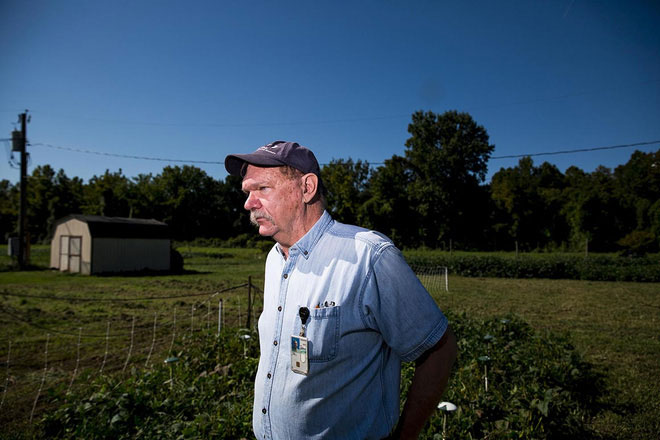With the increase of CO2, the nutritional quality of rice grain will be reduced, the risk affecting billions of people
The amount of CO 2 released into the air is much more influential than previously thought. They not only cause global warming, affecting both terrestrial and aquatic life, but also negatively impact the global food system. In the new study, published in Science Advances, scientists say more about the problem: CO 2 in the atmosphere increases, the amount of micronutrients in a number of plant species will decrease.
Expert group study on the effects of air and discovered rice: rice after contact with waste CO 2 would contain less protein, iron, zinc and vitamin B more; The CO 2 used in the experiment is the level of pollution expected to occur by the end of this century.

With the worrying discharge situation, the rice bowl will not be as nutritious as it is now.
Currently, millions of people face malnutrition, and it is clear that rice - the main source of life for billions of people - reduces the nutritional quality which will make the situation much worse.
Lewis Ziska, one of the authors of the study, wrote: ' Rice is the main food of about two billion people - 50% of the daily nutrition of the most deprived communities is grain. The nutritional quality of the rice grain has any problems, we will have serious consequences '.
The researchers point out that previous studies focused more on how to grow during climate change, but Professor Ziska said that the nutritional factors in rice are just as important.

Physiologist Lewis Ziska.
In the experiment, the research team for rice paddies in China and Japan in contact with carbon dioxide levels are higher than normal, the CO 2 at which scientists say will appear at the end of this century. Disappointing results appear: the majority of rice received from 18 tested rice samples showed lower levels of protein, zinc and iron than today's rice.
They also found that the levels of vitamins B1, B2, B5 and B5 decreased significantly. However, rice 'breathing' air much CO 2 contains more vitamin E than.
In general, for residents of countries that rely heavily on rice as their primary source of nutrition, they will soon have to seek alternative sources of nutrition if the current CO 2 release continues. This will be a major obstacle for residents of poor and developing countries.
Not only do the rice "suffer"
Scientists emphasize that all life forms on Earth will be affected by the increase of CO 2 in the air. However, there is not enough research data to clearly see the effect of air quality on species with few nutrients, such as bees.
A report published last year also warned wheat granaries, another staple crop in the food industry, to reduce productivity as the Earth warms. Wheat and rice differ in this regard: wheat productivity is affected by temperature, while rice is directly affected by CO 2 in the air.

CO 2 makes rice healthier, but that does not mean they are more nutritious.
During photosynthesis, plants absorb CO 2 and release O 2 ; When the amount of CO 2 in the air is greater, the plant will automatically absorb additional CO 2 without any other restrictive mechanism. The chemical composition of rice changes, micronutrients are altered by the elements that contain carbon dioxide.
' Carbon dioxide makes plants healthier. But that doesn't mean the quality of the plant improves, 'says physiologist Ziska.
The scientists want to be able to take many more experiments in order to determine the causes CO 2 makes nutritional quality of vegetation change. Most likely, CO 2 makes plants grow too fast and can't keep up with nutrients. Mr. Ziska is concerned that air quality will affect other essential foods like potatoes.
While waiting for science to find an answer, the immediate solution is extremely simple: reduce emissions to preserve the nutritional quality of food sources. The Earth is the only place where rice can be grown, we cannot find this 'real pearl' on any other planet.
- The amount of CO2 in the atmosphere is rising a record
- The concentration of CO2 in the atmosphere has increased by a record over the past 800,000 years
- Gene helps increase rice yield and quality
- Unexpected record of cotton of thousand grains
- How to prevent rice seed disease for high efficiency?
- Successfully growing high quality rice varieties from Japan
- Discovering a new kind of rice gene for high yield
- Too high CO2 levels can cause rice to lose many important nutrients?
- Small computer with rice grain
- The hidden secret of
- Vietnam successfully bred two high quality rice varieties
- Choose to create two new high quality aromatic rice varieties
- New rice varieties supplement nutrition for poor children
- Video: The use of micro-grain rice chips implanted in the hand
 Is the magnetic North Pole shift dangerous to humanity?
Is the magnetic North Pole shift dangerous to humanity? Washington legalizes the recycling of human bodies into fertilizer
Washington legalizes the recycling of human bodies into fertilizer Lightning stone - the mysterious guest
Lightning stone - the mysterious guest Stunned by the mysterious sunset, strange appearance
Stunned by the mysterious sunset, strange appearance Top 8 surprising facts about sushi - Japan's national dish
Top 8 surprising facts about sushi - Japan's national dish  Risk of dangerous diseases from the habit of eating cold rice
Risk of dangerous diseases from the habit of eating cold rice  Why are Japanese people no longer interested in rice and gradually switching to bread?
Why are Japanese people no longer interested in rice and gradually switching to bread?  World's oldest wine discovered in China
World's oldest wine discovered in China  Unique delicious rice variety in flood season, the more flooded the higher the yield in An Giang
Unique delicious rice variety in flood season, the more flooded the higher the yield in An Giang  Can rice water prevent hair loss?
Can rice water prevent hair loss? 